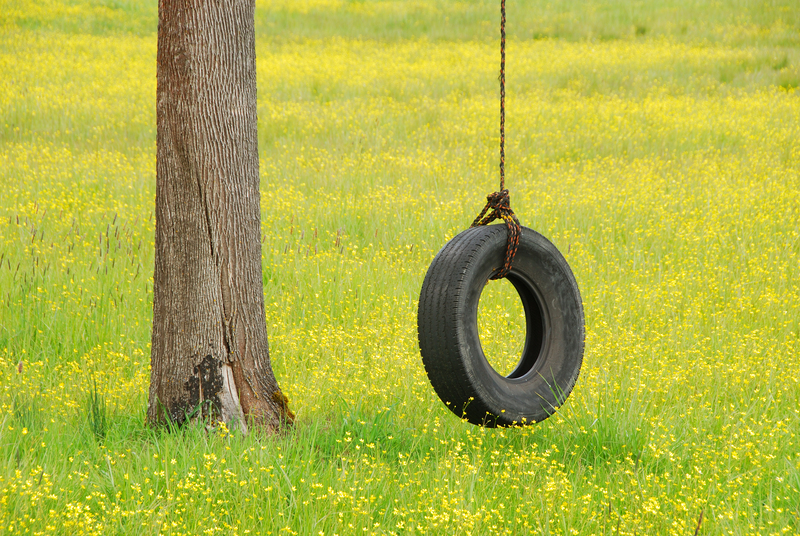Demystifying the Builders Skip for Everyday Use
When taking on home improvement projects, managing waste efficiently is often overlooked. Yet, it's a crucial part of any renovation or clean-up task. One of the most popular solutions for handling large volumes of waste is the builders skip. Although commonly found on construction sites, builders skips have a wide range of applications for everyday tasks. In this comprehensive guide, we'll break down everything you need to know about builders skips, their benefits, how to use them effectively, and how they can simplify waste disposal for homeowners and small businesses alike.

What is a Builders Skip?
A builders skip is a large, open-topped waste container designed to be loaded onto a special type of lorry. Traditionally associated with construction and renovation projects, these skips are used to collect a considerable volume of waste, such as rubble, bricks, plasterboard, soil, and household debris. Unlike domestic or mini skips, builders skips offer a larger capacity, making them suitable for a variety of large-scale projects.
Key Characteristics of Builders Skips
- Capacity: Typically ranging between 6 and 8 cubic yards (around 4.5 - 6 cubic meters).
- Material: Constructed with robust steel for durability and strength.
- Design: Open-topped, allowing easy access for loading waste.
- Placement: Usually delivered and collected by skip lorries.
The builders skip container is a true workhorse in waste management, especially in construction and large-scale cleanups. However, their utility goes far beyond professional building sites, benefiting a wide range of everyday projects.
Everyday Uses of a Builders Skip
Homeowners and small business owners often underestimate the practicality of a builders skip. Here are some everyday scenarios where hiring a builders skip proves invaluable:
1. Home Renovations
- Kitchen and bathroom remodels generate considerable waste, including old fixtures, cabinets, flooring, and tiles. A builders skip bin can accommodate all this debris, streamlining the clean-up process.
2. Garden Landscaping
- Landscaping projects can quickly produce high volumes of soil, turf, branches, and other green waste. Using a builders skip makes garden transformations quicker and neater.
3. Garage and Loft Clear-outs
- Clearing clutter, old furniture, or broken appliances? A builders waste skip offers enough space to dispose of various bulky items at once.
4. Small Business Refurbishments
- Shops, offices, or cafes undergoing renovations often benefit from the convenience of a larger waste container.
5. Community Events or Festivals
- Builders skips are perfect for managing waste generated at local events, ensuring a tidy environment for everyone.
No matter the project, hiring a builders skip for domestic use helps save time and effort, making large-scale waste management much more efficient.
Benefits of Using a Builders Skip
Integrating a builders skip into your project comes with numerous advantages:
- Cost-Effective: Collecting all waste in one place reduces multiple trips to the local tip, saving on fuel and time.
- Safe and Tidy Worksite: Keeping waste contained significantly reduces risks of accidents and injuries on-site.
- Versatile Waste Handling: Builders skips hold a variety of waste types, including general rubbish, garden materials, and construction debris.
- Eco-Friendly Disposal: Reputable skip hire services ensure your waste is handled and processed responsibly, encouraging recycling where possible.
- Time-Saving: No more loading and unloading car boots or waiting in tip queues. The skip company delivers and collects according to your schedule.
How to Choose the Right Builders Skip
Selecting the appropriate skip depends on your specific needs. Here's how to ensure you choose the right builders skip size for your project:
Assess the Volume of Waste
- 6-yard skips are ideal for small-medium renovations and garden projects.
- 8-yard skips suit larger projects, including major refurbishments and building work.
Consider the Type of Waste
- Most general building and household waste can go in a builders skip.
- Certain items, such as hazardous waste (asbestos, chemicals) or electrical appliances, may have special disposal requirements.
Space and Access
- Ensure your property has enough accessible space for skip delivery and pick-up.
- If placing the skip on a public road, you may need a permit from your local council.
Discussing your project details with a builders skip hire company can help you avoid overpaying for skip size, ensure legal compliances, and clarify what's allowed in your bin.
What Can You Put in a Builders Skip?
A common question homeowners face is, "What can I actually put in a builders skip?" The following materials are typically accepted:
- Bricks, rubble, concrete, and other construction materials
- Soil and turf (in modest amounts)
- Tiles and ceramics
- Wood, plastic, and metal
- Old furniture and non-electrical appliances
- General household waste
Prohibited items (check with your skip provider):
- Asbestos and hazardous chemicals
- Gas cylinders, paint tins (containing liquid), solvents, or oils
- Electrical items (fridges, TVs, computers)
- Large quantities of plasterboard (often restricted in mixed loads)
For specialist materials, always consult your builders skip hire company before disposal. This ensures both safety and compliance with environmental legislation.
How to Load Your Builders Skip Efficiently
Proper skip loading maximizes space and minimizes safety hazards. Here are expert tips to get the most from your builders skip:
- Break Down Items: Disassemble furniture and cut up large branches or boards to fit more in the skip.
- Start with Flat Items: Place flat items and heavier material at the bottom, working up to lighter waste.
- Fill in Gaps: Chop and compact waste to avoid air pockets. Fill smaller spaces with debris or broken materials.
- Do Not Overfill: Never stack waste above the skip's rim; it's illegal for companies to remove overfilled skips.
Following these guidelines helps maintain a safe environment and ensures you're getting great value from your builders skip bin.
Understanding the Builders Skip Hire Process
Renting a builders skip is a straightforward and stress-free process when you're informed:
- Choose your skip size: Estimate your waste and select the right builders skip container.
- Book your skip: Contact a local, reputable builder's skip hire firm online or by phone.
- Arrange delivery: Set a convenient drop-off date and provide access details.
- Load your waste: Fill the skip according to guidelines for safe, legal disposal.
- Collection: Inform the company when your skip is full or your hire period ends--they'll collect and process your waste.
Most builders skip hire services offer flexible hire periods. Whether you need the skip for a few days or a couple of weeks, booking in advance ensures availability.
Builders Skip FAQs
How much does a builders skip cost?
The cost varies depending on your location, skip size, type of waste, and required permits. On average, hiring a builders skip ranges from £180 to £300, which often includes delivery, collection, and disposal.
Do I need a permit for a builders skip?
If your skip is placed on private property, such as a driveway, you generally don't need a permit. However, skips on public roads or pavements do require a permit--a process usually organized by your skip hire company.
Can I mix all types of waste in a builders skip?
Mixed waste is usually acceptable, although certain items (hazardous materials, electrical appliances) may be restricted or require separate disposal. Always clarify with your provider.
How quickly can a skip be delivered?
Many companies offer same-day or next-day delivery of builders skips, subject to availability and access.
What happens to the waste after collection?
Skip hire companies sort, recycle, and dispose of your waste at licensed facilities, aiming to reduce landfill contributions and maximize recycling.

Environmental Considerations: Ensuring Responsible Skip Use
Modern waste management prioritizes sustainability. By choosing a reputable builders skip hire service, you are:
- Supporting recycling initiatives: Many companies sort and recycle up to 90% of the waste they collect.
- Reducing fly-tipping: Proper skip use helps prevent illegal dumping, which can harm the environment and carry heavy fines.
- Complying with regulations: Licensed companies ensure all waste is handled and processed according to legal standards.
For environmentally-conscious homeowners, some providers even offer greener skip options or ensure carbon-neutral operations.
Conclusion: Simplifying Waste Disposal with the Builders Skip
Whether you're tackling a home renovation, clearing your garden, or refurbishing a business, the builders skip has a vital role to play. Demystifying the builders skip reveals it's not just for professionals--it's an accessible, efficient, and environmentally responsible solution for a broad range of projects. Understanding how builders skips operate, how to choose the right size, and what you can dispose of empowers you to manage waste responsibly and with confidence.
For your next home or business project, consider the builders skip: a simple tool that transforms the challenge of waste disposal into a worry-free task. If you're ready to book, contact your local builders skip hire company and make your project cleaner, safer, and more manageable from start to finish.